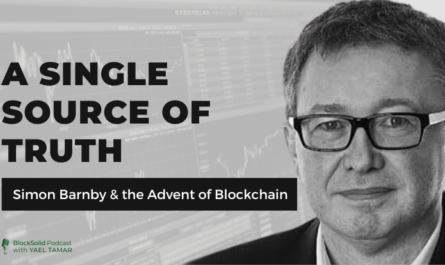
He may have been twice-voted People’s “sexiest man alive,” but neither acting nor his striking good looks define Hill Harper.
Hill is the author of four New York Times bestsellers and has earned seven NAACP Image Awards for his writing and acting. He is the founder of the Manifest Your Destiny Foundation, dedicated to empowering underserved youth through mentorship, scholarship, and grant programs, and is the adoptive father of a son, Pierce.
Hill graduated magna cum laude as valedictorian of his department with a bachelor’s degree from Brown University and cum laude with a Juris Doctorate degree from Harvard Law School, where he became friends with another ambitious classmate, Barack Obama.
In 2021, Hill and his co-founder Najah Roberts, a leading cryptocurrency exchange expert, created an app called The Black Wall St. This is the first Black-owned digital wallet and cryptocurrency exchange platform in the US, and it deserves our recognition as a leading proponent of empowering historically, systemically institutionalized and marginalized communities.
In turning to blockchain and the ownership of cryptocurrencies as technologies that can solve systemic racism, Hill expounds on how sometimes, racial advancements are unintentional byproducts of technology.
“I always use Uber as an example of how unintended consequences of good technology actually deal with systemic racism,” explains Hill. “Think about this. As a black man in New York City, I could have the money in my hand, it could be raining and I need a cab, and the taxi would drive right by me. That’s functional racism.
“Now, with Uber, the app doesn’t know my race. The car shows up through technology. Uber’s founders didn’t know that they would be solving a race-based mobility problem.”
A History Lesson
The Black Wall St., app takes its name from one of the most affluent Black communities in American history, the Greenwood District in Tulsa, Oklahoma, which, in 1921, was known as “The Black Wall St.” Following a disputed incident between a black man and a white woman, in June 1921, mobs of white residents, some of whom had been deputized and given weapons by city officials, attacked Black residents and destroyed homes and businesses. Thirty-five city blocks went up in flames, 300 people died, and 800 were injured. Sadly, many whites were threatened by this insulated and wealthy community of Black Americans.
“The largest and the most robust Black community in Tulsa was founded by a man named O.W. Gurley,” reports Hill. “He bought almost 40 blocks of land right outside of downtown Tulsa on the south side of these railroad tracks.”
Gurley proceeded to create an ecosystem of wealth access and opportunity within his community predicated on three key points.
“Pillar number one, institutional ownership,” Hill recounts. “Gurley encouraged the people to actually be owners. Not employees, not renters, but actual owners. Number two, institutional trust. He encouraged folks to trust each other and transact with each other, and create liquidity flows with each other. And pillar number three, perhaps the most important: the movement of money or capital within the ecosystem. A dollar changed hands within that ecosystem 36 to 100 times before leaving the community.”
The app is a cryptocurrency platform that endorses those ideas by encouraging the Black community to “learn, earn and invest” in an alternative monetary system. “Black Americans still hold only 1% of US wealth,” the platform declares. “Black Americans are systematically refused access to the financial system and are the victims of institutionalized predators. This ends now.”
The app function that Hill is most proud of is something he calls, “set it and forget it,” a weekly or monthly investment plan that can work with as little as $6.
“Set it and forget it,” Hill explains, “and you start understanding that there’s a way to build foundational wealth without having to go to a payday lender who’s taking 18% to 24% off a paycheck that already hasn’t kept up with inflation.”
Build Wealth. Build Self. Build Community.
With the launch of The Black Wall St., Hill and his staff conducted a 30-city bus tour to promote the idea of and educate the Black community about the benefits of cryptocurrencies.
“We went to the most economically challenged zip codes in the US and attempted to meet people where they are,” says Hill. “There were so many people saying, ‘you know what? You can’t talk about digital currency and crypto and Bitcoin to communities where they can’t even pay their bills.’ And I’m like, that’s exactly who we need to be talking to about this.”
Blockchain unleashes the power of economic control and wealth creation with its inherent stability, transparency and flexibility and the capacity to build the bank of the future with peer-to-peer transactions. And, it has the ability to create a community based on trust.
Sometimes funding this idea is hard work.
“No car can run without some type of fuel or energy, and for us to be able to scale, we need funding,” explains Hill. “That’s been our biggest challenge because as a mission platform, a lot of folks who are in FinTech want to see, ‘what’s my return within 18 months, and what’s my customer acquisition cost?’ We’re attempting to offer value first to the community and then saying, ‘Hey, we’re going to build this community, offer them value. And yes, I know historically this is the community you’re used to extracting value from, but why don’t we flip it and offer value?’ It’s been a very hard position to take, to be quite honest.”
Partnerships are a Must: Remembering MLK
Hill is adamant about creating partnerships with other like-minded businesses. “Those of us who are working in this space have to remain intentional in our actions,” he says. “We have to keep doing the work and working together and supporting each other, or things can run in a whole different direction and end up [centralizing] a system that was supposed to create more equity and fairness.”
In quoting Martin Luther King, Jr., Hill emphasizes this belief. “One of my favorite Dr. King quotes is, he said, ‘We’re all tied together in a single garment of mutual destiny.’ He didn’t say some of us are tied together. He didn’t say if you’re from Israel and I’m from the US, if you’re black or you’re white, if you’re this or that… No, we are all tied together in a single garment of mutual destiny.
“So my destiny is inextricably linked with yours and everybody who’s watching this or listening to this no matter if you’re watching it 10 years after we recorded it or taped it, we’re still linked. Even if I’m long gone or whatever, we are still linked. And so that’s understanding mutual destiny, understanding radical empathy and understanding the effective use of fair-faced technology, blockchain technology, that can impact the world. All of those things go hand in hand, and that’s why I love the fact that I’m on this journey.”
What’s Next for Hill Harper?
Hill believes that we are living in a time where there is so much going on that in order to get the most out of each event in our lives, we must practice “sequential mastery.”
“We all have the ability to be a master of many things,” he continues. “I certainly can’t do a bunch of stuff at the same time but if we’re able to focus and do things sequentially, whenever I’m doing one thing, this is all I’m doing.”
When we asked Hill what his next book would be about, Hill demurred and said that writing was hard work. With some prodding, he suggested that he wanted to write about radical empathy, the notion that walking in someone else’s shoes requires taking actions that will help that person and improve society.
“I’ve actually been thinking about the next book, but I’m not still not committing to it,” he smiles. “To be quite honest, it would be a book about radical empathy. How can we put ourselves into attempting to understand another’s experience and their worldview? I don’t know what that book is yet, but it would be centered on radical empathy.”
We eagerly await Hill’s next best-seller, and in the meantime, we’re following #theblackwallst and admiring the positive energy that Hill puts into all his many roles.
To hear the full interview with Hill, click here.

 by
by 

